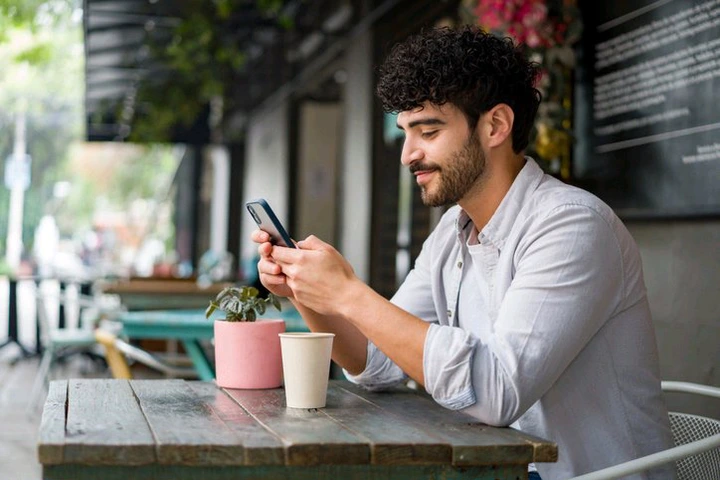There are some things you should never keep on your cell phone because doing so can leave you open to privacy invasions, identity theft, and outright theft. Here are some things you shouldn’t put on your phone.
1. Your passphrases.
The irony of passwords is that they’re supposed to keep our data safe, and more and more, we’re being told to always use a strong password and never use the same password more than once. Because of this, it’s getting harder to remember passwords without some kind of cheat sheet. But if you actually use one, especially one that you store on your phone as a note, a document, or even in autofill, you put your data at risk. If you lost your phone, someone could easily see your cheat sheet. But even if you always have your phone with you, any passwords you store on it could end up in the cloud, putting all of your accounts at risk, even those that aren’t tied to your phone.
Instead of keeping a list of your passwords or relying on autofill, you could download a password manager like Keeper, Dashlane, or LastPass so that you can access all of your passwords with one strong master password.
2. Your thumbprint.
Don’t be tempted to use fingerprint identification to open your phone if you really want to keep it safe. There are many ways that someone in your physical presence could use your fingerprint to force a log-in. For example, a thief who uses physical force or a late-night prank after a party. Even though there’s nothing to say a thief couldn’t force you to type in your password, the fact is that a phone that needs a password to unlock it takes more steps to unlock and is therefore safer.
Also, there is always the chance that someone could steal your fingerprint. Even though the risk is small, the loss would be huge, so you should think twice before using your fingerprint.
3• Your face. If you’ve ever had trouble getting your phone to recognize your face when you’re holding it at an odd angle, you might say that using your face as a password instead of your fingerprint is safer. Even though that may be true, the fact is that using your face to unlock your phone is still less secure than using a password.
4. Your own pictures and videos.
You might be great at keeping your social media accounts as clean and private as possible, but what about the photos and videos you keep on your phone? If you have photos that you don’t want your parents, spouse, kids, or boss to see, you shouldn’t store them on your smartphone, especially since the contents of your phone may be stored in the cloud. But if you feel like you have to keep those naughty photos somewhere, think about putting them on a personal computer that only you can open with the password. You could also put them in an album or app that requires a password to view.
5•Photos with personal information on them. Remember when losing your wallet meant you had to figure out your whole life to figure out which credit cards and forms of ID you needed to cancel and replace? Now, all you have to do is take a picture of each item and store it on your phone, right? Well, that’s an easy way to keep track of what you have in your wallet. But hackers could get into your information, especially if your photos are stored in the cloud. As with photos you don’t want to get out, you might want to store them on a computer that only you can get to, or in a password-protected album or app.
6• Anything personal if you’re using a phone that your employer gave you.
There’s no such thing as something for nothing. Also, there is no such thing as a free phone at work. Your employer gave you a phone, but it costs you a lot: your privacy. If your employer gave you a phone to help you work from home or for some other reason, you shouldn’t think that anything you do on that phone will be private. The best thing to do for your personal life is to use a different phone and phone number. A burner phone is one way to stay on budget.
7. The online bank account you have.
You’re not the only one who thinks that online banking is the best thing since sliced bread. You are also not wrong to think that. But the convenience of being able to use online banking anywhere and at any time comes at a price: your privacy. If you keep your bank account information on your phone, you could lose control of it if you lose your phone or even if you lose track of an old phone you no longer use.
You might want to avoid doing your online banking on your phone to reduce the risk. Instead, do it on a computer that is always at home. If you have to take your online banking with you wherever you go, make sure to use a strong, unique password to open your banking app.
8• Your home address.
By saving your home address in the navigation apps you use most, you can get home quickly and easily from anywhere. It can also leave you open to danger. If a thief gets their hands on your phone, they can just click on Waze or Google Maps to see where you’ve saved your home or work address. It’s also possible that your home or work address could be hacked or leaked in some other way. If you like to keep those addresses handy so you don’t have to type them in over and over again, give would-be thieves a code word like “gym” to make it harder for them to find your home or work address.
 Moni Malawi
Moni Malawi 

